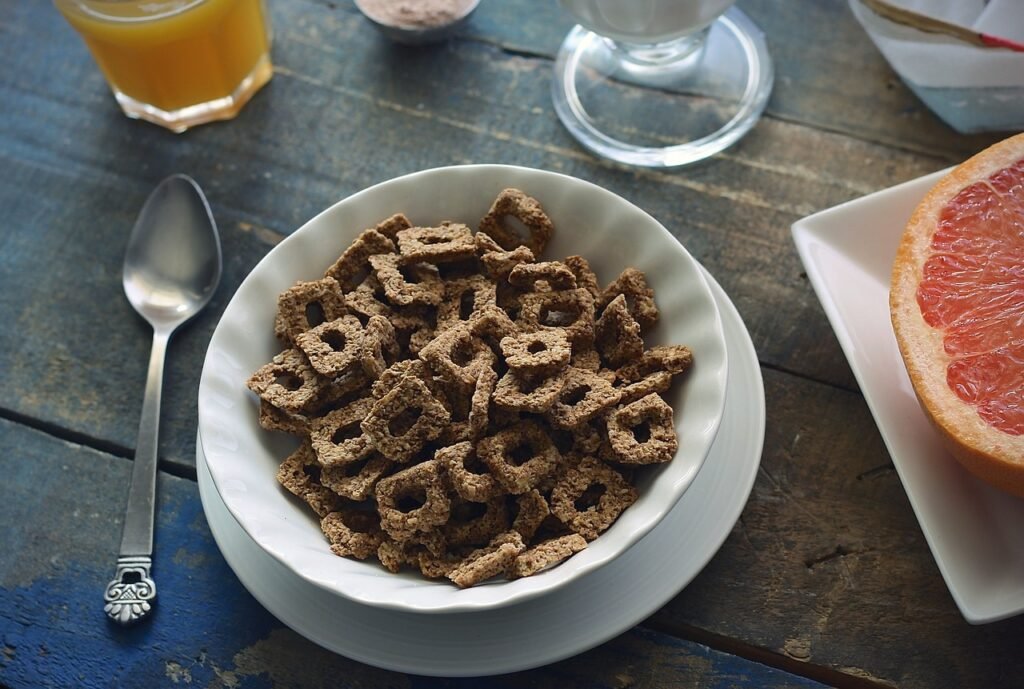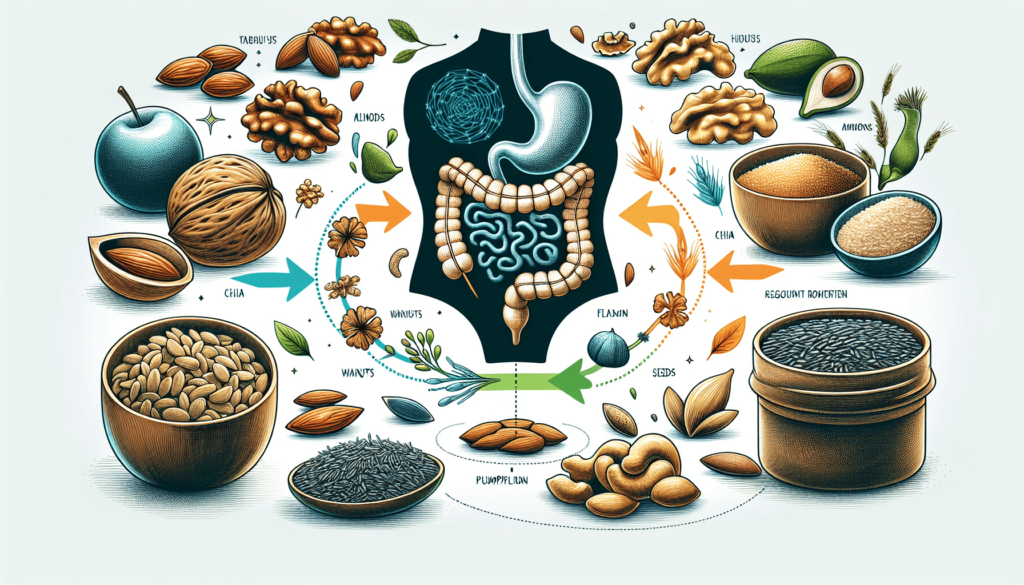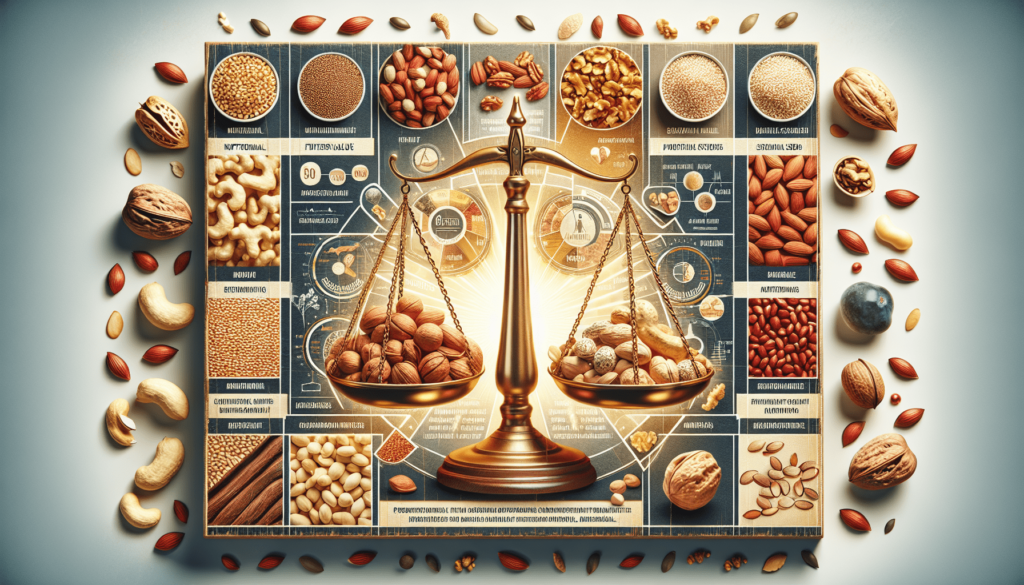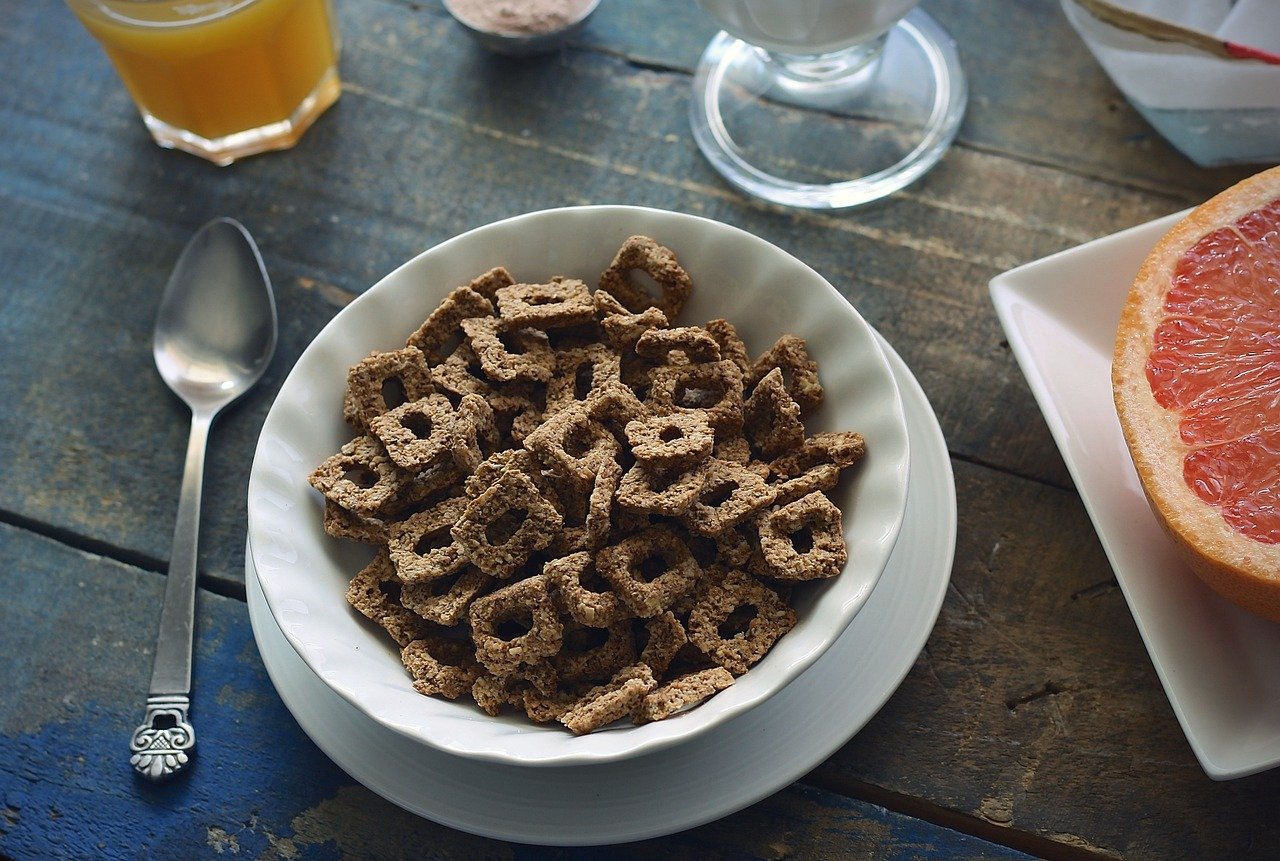Constipation can be a frustrating and uncomfortable condition to deal with, but could the solution be as simple as incorporating nuts and seeds into your diet? This article explores the potential benefits of adding these small but mighty snacks to your daily routine as a way to prevent or manage constipation, providing valuable insights into how these natural foods may improve your digestive health. So, if you’re looking for a healthy and tasty solution to ease your constipation woes, read on to discover the potential power of nuts and seeds.
Introduction
Constipation is a common gastrointestinal problem that can cause discomfort and inconvenience in your daily life. If you’re looking for natural ways to prevent or manage constipation, you may be wondering if nuts and seeds can help. In this article, we will explore the role of diet, specifically nuts and seeds, in the prevention and management of constipation. We will discuss the definition, causes, and symptoms of constipation, and delve into the nutritional content of nuts and seeds. Furthermore, we will uncover how nuts and seeds work in the body to alleviate constipation and provide a comprehensive list of nuts and seeds that are beneficial in this regard. Additionally, we will provide practical tips on how to incorporate nuts and seeds into your diet and offer precautions and considerations to keep in mind. Finally, we will touch on other dietary and lifestyle measures that can complement the inclusion of nuts and seeds, and emphasize the importance of consulting a healthcare professional for personalized advice.
Understanding constipation
Definition of constipation
Constipation is a condition characterized by infrequent bowel movements and difficulty in passing stool. It can vary from person to person, but typically refers to having fewer than three bowel movements per week. Additionally, the stool may be hard, dry, or lumpy, making it challenging and sometimes painful to pass.
Causes of constipation
There are various factors that can contribute to constipation. These include a lack of fiber in the diet, inadequate hydration, a sedentary lifestyle, certain medications, and certain medical conditions such as irritable bowel syndrome (IBS) or thyroid disorders. Stress and changes in routine or lifestyle can also trigger constipation.
Symptoms of constipation
The symptoms of constipation may manifest differently in individuals, but common signs include straining during bowel movements, a feeling of incomplete evacuation, abdominal bloating and discomfort, and a decreased appetite. Long-term constipation can lead to complications such as hemorrhoids or anal fissures, making it essential to address and manage the condition effectively.

This image is property of pixabay.com.
Role of diet in constipation
Fiber and hydration
One of the key factors in preventing and managing constipation lies in maintaining a diet that is rich in fiber and consuming an adequate amount of fluids. Fiber adds bulk to the stool, helping it retain water and soften, making it easier to pass. It also stimulates the muscles in the colon, promoting regular bowel movements.
Importance of a balanced diet
While fiber and hydration play significant roles, it is crucial to maintain a well-rounded, balanced diet to support overall digestive health. In addition to nuts and seeds, incorporating fruits, vegetables, whole grains, and lean proteins can provide essential nutrients and contribute to regular bowel movements.
Nuts and seeds as a source of fiber
Nutritional content of nuts and seeds
Nuts and seeds are not only delicious but also pack a nutritional punch. They provide a variety of vitamins, minerals, healthy fats, and plant compounds. In terms of fiber content, they are a great addition to a high-fiber diet. Different nuts and seeds have varying nutrient profiles, so incorporating a variety into your diet can provide a wide array of health benefits.
High fiber content
Many nuts and seeds are excellent sources of dietary fiber. Fiber adds bulk to the stool, allowing it to pass more easily through the digestive system. Almonds, walnuts, flaxseeds, chia seeds, sunflower seeds, and pumpkin seeds are particularly high in fiber, making them beneficial for individuals experiencing constipation.
Types of nuts and seeds beneficial for constipation
While most nuts and seeds can contribute to a healthy digestive system, certain types have specific properties that make them particularly beneficial for constipation. Almonds, for example, are rich in both fiber and magnesium, which can help regulate bowel movements. Walnuts are high in omega-3 fatty acids, which have anti-inflammatory properties and may help alleviate constipation. Flaxseeds and chia seeds are rich in soluble fiber, which absorbs water and adds bulk to the stool, aiding in its passage. Sunflower seeds and pumpkin seeds are also high in fiber and provide essential nutrients to support overall digestive health.

Mechanism of action
Bulk-forming effect
When you consume nuts and seeds, particularly those high in fiber, they absorb water in the intestines and swell, creating bulk in the stool. This bulk stimulates the muscles in the colon, triggering contractions that propel the stool forward and promote regular bowel movements.
Promotion of bowel movement
In addition to their bulk-forming effect, nuts and seeds can also stimulate the nerves in the intestines and promote the muscular contractions necessary for bowel movements. This stimulation helps prevent stool from becoming stagnant and facilitates its movement through the digestive tract.
Softening of stool
The fiber content in nuts and seeds helps to soften the stool by adding moisture and preventing it from drying out. This makes the stool easier to pass, reducing the likelihood of constipation and associated discomfort.
Specific nuts and seeds for constipation
Almonds
Almonds are a powerhouse when it comes to fiber. They contain both soluble and insoluble fiber, making them an ideal choice for alleviating constipation. Additionally, almonds are rich in magnesium, which aids in regulating bowel movements and promoting regularity.
Walnuts
Walnuts provide a healthy dose of omega-3 fatty acids, which have anti-inflammatory properties and may help soothe the digestive system. As a good source of fiber, walnuts can also contribute to regular bowel movements.
Flaxseeds
Flaxseeds are renowned for their high fiber content, with a significant portion of this fiber being soluble. The soluble fiber in flaxseeds absorbs water, softens the stool, and promotes regular bowel movements. It is worth noting that flaxseeds are more effective when ground, allowing your body to absorb their nutrients more efficiently.
Chia seeds
Chia seeds are an excellent source of dietary fiber, and like flaxseeds, they are high in soluble fiber. By absorbing water, chia seeds form a gel-like substance in the intestines, adding bulk to the stool and facilitating its movement through the digestive tract.
Sunflower seeds
Sunflower seeds not only make a tasty snack but also offer a good amount of dietary fiber. Their fiber content promotes regular bowel movements and supports overall digestive health.
Pumpkin seeds
Pumpkin seeds are a nutritional powerhouse, packed with fiber, healthy fats, and essential minerals. Their fiber content aids in maintaining regular bowel movements and can be particularly beneficial for individuals experiencing constipation.

Tips for incorporating nuts and seeds in diet
Snacking on nuts and seeds
One of the simplest ways to enjoy nuts and seeds is through snacking. Keep a small portion of your favorite nuts or seeds on hand for a convenient and nutritious between-meal snack. You can also mix different varieties to create a tasty trail mix.
Adding nuts and seeds to meals
Nuts and seeds can be sprinkled on top of salads, yogurt, oatmeal, or cereal to add a crunchy texture and enhance the nutritional value. They can also be included in stir-fries or added to smoothies for an extra boost of fiber.
Including nuts and seeds in baked goods
If you enjoy baking, incorporate nuts and seeds into your recipes. Whether it’s adding chopped walnuts or almonds to muffins or including ground flaxseeds in cookies, these additions can increase the fiber content of your baked goods.
Using nut and seed butters
Nut and seed butters, such as almond butter or tahini (sesame seed butter), are versatile and can be spread on whole grain crackers, toast, or used as a dip for fruits and vegetables. These butters provide the nutritional benefits of nuts and seeds in a convenient and tasty form.
Precautions and considerations
Allergies and sensitivities
While nuts and seeds are generally safe for most individuals, it is essential to be aware of any allergies or sensitivities you may have. Some people may have allergic reactions to certain nuts or seeds, so it is crucial to consume them in moderation and monitor your body’s response.
Quantity and portion control
Although nuts and seeds can be beneficial for constipation, they are also calorie-dense. To avoid consuming excessive calories, it is important to practice portion control. A handful of nuts or seeds per day, or as recommended by a healthcare professional, is generally a reasonable amount.
Soaking or grinding nuts and seeds
Soaking or grinding nuts and seeds, particularly flaxseeds, can enhance their digestibility and promote nutrient absorption. By doing so, the nutrients in nuts and seeds become more bioavailable, increasing their effectiveness in alleviating constipation.

This image is property of pixabay.com.
Other dietary and lifestyle measures
Fluid intake
In addition to a high-fiber diet, it is crucial to stay hydrated. Drinking an adequate amount of fluids, preferably water, can soften the stool and facilitate regular bowel movements. Aim to drink at least eight glasses of water per day or as recommended by your healthcare professional.
Regular physical activity
Engaging in regular physical activity, such as walking, jogging, or yoga, can help stimulate bowel movements and prevent constipation. Exercise promotes the contraction of the intestinal muscles, aiding in the smooth passage of stool through the digestive system.
Stress management
Stress and anxiety can affect your digestive system and contribute to constipation. Incorporating stress-management techniques, such as deep breathing exercises, meditation, or engaging in hobbies and activities you enjoy, can help promote overall well-being and support a healthy digestive system.
Consulting a healthcare professional
Seeking medical advice
While incorporating nuts and seeds into your diet can be a beneficial step towards preventing or managing constipation, it is always advisable to consult with a healthcare professional. They can assess your individual needs, identify any underlying medical conditions, and provide personalized recommendations tailored to your specific situation.
Individualized recommendations
Every person’s dietary requirements and health conditions are unique. A healthcare professional, such as a registered dietitian or gastroenterologist, can provide individualized guidance based on your specific needs. They will take into account factors such as allergies, medical history, and personal preferences to offer the most appropriate advice for you.
In conclusion, nuts and seeds can play a valuable role in helping prevent and manage constipation. Their high fiber content, ability to add bulk to the stool, and promotion of regular bowel movements make them a beneficial addition to a well-rounded diet. By incorporating nuts and seeds into your meals or snacks, you can contribute to a healthy digestive system and support overall well-being. Remember to consult with a healthcare professional for personalized recommendations and guidance based on your unique situation. With the right approach and a bit of planning, you can take control of constipation and enjoy a comfortable and regular digestive experience.

This image is property of pixabay.com.

